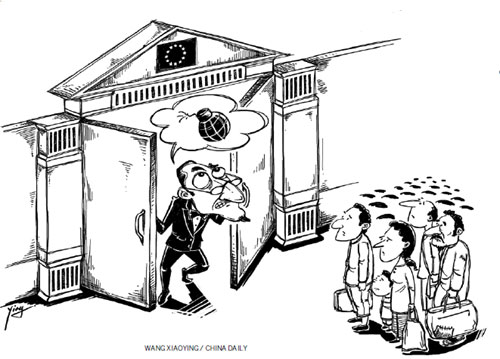Paris attacks won't shut door on refugees
By Gong Honglie (China Daily) Updated: 2015-11-19 07:56

The terrorist attacks in Paris have set a new bloody record in Europe. They not only claimed more lives than the January attack on satirical magazine Charlie Hebdo, but also showed that terrorists are "better coordinating" to carry out their evil deeds.
Worse, unlike the January attack that had a clear target and claimed 12 lives, the latest attacks were indiscriminate and left 129 people dead and about 350 injured.
The attacks will influence the way France and other Western countries view terrorism and combat it. But more than that, they will influence the attitude of Western people toward Muslim refugees from the Middle East and could even prompt some European Union countries to rethink whether to accept the refugees. As a result, the political parties opposed to accepting Muslim immigrants may gain more supporters.
In fact, anti-immigrant sentiments in Europe started rising after the Sept 11, 2001, attack on the US, especially because almost all the major terrorist attacks since then have been carried out by Islamic extremists.
In the latest Paris attacks, for example, a passport was found at one of the sites suggesting one of the attackers might have entered Europe in the guise of a Muslim refugee from Syria. (Although the possibility should not be discounted that the passport was deliberately planted with a few to heightening the existing suspicion and distrust of the refugees.) Three other attackers came from a Muslim immigrant community in Belgium.
Unfortunately, the Middle East refugees could now face another problem-distrust of the European public because it is difficult for the EU countries to distinguish between terrorists and genuine refugees.

I’ve lived in China for quite a considerable time including my graduate school years, travelled and worked in a few cities and still choose my destination taking into consideration the density of smog or PM2.5 particulate matter in the region.











